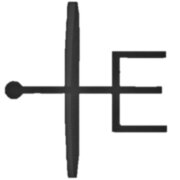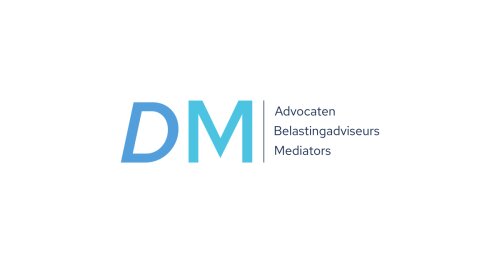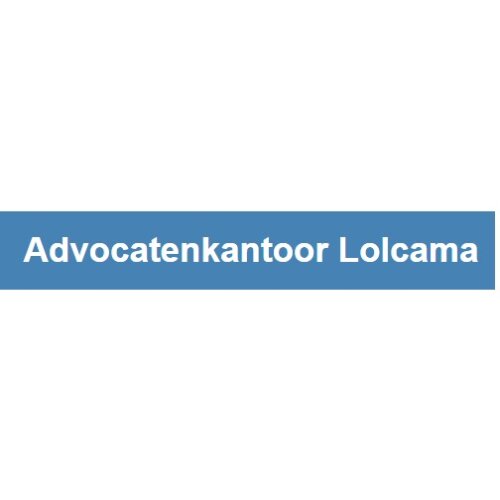Best Antitrust Litigation Lawyers in The Hague
Share your needs with us, get contacted by law firms.
Free. Takes 2 min.
List of the best lawyers in The Hague, Netherlands
About Antitrust Litigation Law in The Hague, Netherlands
Antitrust litigation refers to legal proceedings related to the enforcement of competition laws, designed to protect markets from unfair business practices such as monopolies, cartels, and abuse of market dominance. In The Hague, Netherlands, antitrust litigation is overseen under both Dutch law and European Union regulations. The Netherlands has a well-established legal framework and experienced judicial bodies to address competition issues, making The Hague a significant venue for antitrust litigation. Cases often involve disputes over mergers, restrictive conditions in contracts, price-fixing, or abuse of power by dominant businesses.
Why You May Need a Lawyer
Many individuals and businesses may find themselves in situations where legal advice is essential in antitrust matters. Common scenarios include:
- Facing investigations or allegations by the Netherlands Authority for Consumers and Markets (ACM).
- Being accused of participating in a cartel or price-fixing arrangement.
- Challenging unfair terms imposed by a dominant competitor or supplier.
- Disputes arising from mergers or acquisitions that may lessen competition.
- Seeking damages for harm caused by anticompetitive conduct of others.
- Responding to competition law compliance reviews or audits.
- Defending against penalties or sanctions related to competition law breaches.
Local Laws Overview
In the Netherlands, antitrust litigation is guided primarily by the Dutch Competition Act (Mededingingswet) and relevant sections of European Union law, particularly Articles 101 and 102 of the Treaty on the Functioning of the European Union (TFEU). Key aspects of local laws include:
- The prohibition of agreements that restrict competition, such as price-fixing, market-sharing, or bid-rigging.
- The prohibition of abuse by companies holding a dominant market position, such as imposing unfair prices, restricting production, or refusing to supply.
- Scrutinizing mergers or acquisitions that may create or strengthen dominant positions, potentially harming market competition.
- The ACM's authority to investigate, issue fines, and order corrective actions.
- Private damages claims that allow businesses or consumers to seek compensation if they have been harmed by anticompetitive conduct.
Frequently Asked Questions
What is considered anticompetitive behavior under Dutch law?
Anticompetitive behavior includes forming cartels, price-fixing, abusive use of market dominance, market sharing, or any activity that prevents, restricts, or distorts competition within the Dutch or EU market.
Who enforces antitrust laws in The Hague?
The Netherlands Authority for Consumers and Markets (ACM) is the primary body responsible for investigating and enforcing antitrust laws in The Hague and the rest of the Netherlands.
Can companies and individuals face penalties for breaching antitrust laws?
Yes, both companies and individuals can face substantial financial penalties, as well as orders to cease prohibited conduct. In serious cases, criminal prosecution may also follow.
Is it possible to claim damages for losses caused by anticompetitive practices?
Yes, individuals or businesses harmed by violations of competition law can bring civil claims for damages before Dutch courts.
Does EU law apply in The Hague regarding antitrust matters?
Yes, EU competition law directly applies alongside Dutch laws. Many antitrust cases involve both national and European legal frameworks.
How are mergers evaluated for antitrust risks in the Netherlands?
The ACM reviews mergers and acquisitions that surpass certain turnover thresholds to assess if they may significantly reduce market competition.
What should I do if I am contacted by the ACM for an investigation?
It is important to seek legal advice immediately, cooperate as required by law, maintain confidentiality, and avoid destroying documents or evidence.
Are there compliance programs to prevent antitrust violations?
Yes, businesses are encouraged to implement internal compliance programs and conduct regular training to reduce the risk of unintentional violations.
Can I report anticompetitive practices anonymously?
The ACM offers confidential channels for whistleblowers to report suspected anticompetitive behavior, sometimes with immunity or reduced penalties for cooperation.
How long do antitrust cases typically take in The Hague?
The duration varies depending on case complexity but may take several months to years, especially if the case is appealed or involves both administrative and civil proceedings.
Additional Resources
Here are some helpful organizations and resources for those seeking more information or support regarding antitrust litigation in The Hague, Netherlands:
- Netherlands Authority for Consumers and Markets (ACM): National regulator overseeing competition issues.
- Dutch Competition Act (Mededingingswet): The main body of law governing competition in the Netherlands.
- European Commission Directorate-General for Competition: EU body enforcing competition law across member states.
- The Hague District Court and the Netherlands Commercial Court: Courts where antitrust disputes may be heard.
- Law firms specializing in Dutch and EU competition law.
- Legal aid organizations and trade associations knowledgeable about competition issues.
Next Steps
If you believe you are involved in or affected by an antitrust issue in The Hague, the following steps are recommended:
- Gather all relevant documentation and evidence related to your situation.
- Contact a lawyer with experience in Dutch and EU competition law to assess your case and advise on your rights and obligations.
- If you are the subject of an investigation, do not make public statements or take rash actions without legal advice.
- Consider submitting a complaint or inquiry with the ACM if you suspect violations by competitors or business partners.
- Look into compliance audits or internal investigations if you manage a business at risk of antitrust scrutiny.
- Inform yourself by consulting additional resources or attending local legal seminars on competition law.
Lawzana helps you find the best lawyers and law firms in The Hague through a curated and pre-screened list of qualified legal professionals. Our platform offers rankings and detailed profiles of attorneys and law firms, allowing you to compare based on practice areas, including Antitrust Litigation, experience, and client feedback.
Each profile includes a description of the firm's areas of practice, client reviews, team members and partners, year of establishment, spoken languages, office locations, contact information, social media presence, and any published articles or resources. Most firms on our platform speak English and are experienced in both local and international legal matters.
Get a quote from top-rated law firms in The Hague, Netherlands — quickly, securely, and without unnecessary hassle.
Disclaimer:
The information provided on this page is for general informational purposes only and does not constitute legal advice. While we strive to ensure the accuracy and relevance of the content, legal information may change over time, and interpretations of the law can vary. You should always consult with a qualified legal professional for advice specific to your situation.
We disclaim all liability for actions taken or not taken based on the content of this page. If you believe any information is incorrect or outdated, please contact us, and we will review and update it where appropriate.















